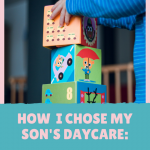We live in a consumer driven world. That means commercials on TV, on the internet, in school curriculums, through made up holidays, and especially through real ones that have lost their true meaning. Christmas now has just as much to do with Jesus as Labor Day does. Even Santa has lost his standing and has been replaced with penguins, polar bears and snowflakes so no one feels left out of the buying frenzy. Muslim parents try hard to “make up” for our kids not celebrating Christmas by turning Eid into an equally commercial holiday, some even dressing up as “Baba Eid” decked out in a red suit and white beard. Do we as a Muslims really want an Islamicized Christmas?
Well we are on our way. You can find Eid party supplies, Muslim business have Eid sales and specials, and parents…well intentioned, loving parents go all out with clothes, gifts and parties. Eid is a time of celebration, but who is defining our practices as American Muslims?
As parents it is our duty to protect our children from every source of harm. Corporations are out to gut the soul of our children, and create a void that “they” have a fix for. Deep connections to Allah SWT helps children feel fulfilled and happy, thus reducing the desire for things. We must foster this understanding during our celebrations as well and not follow in the footsteps of those who are wandering. Additionally, we must foster an understanding of “wastefulness.” Allah SWT Says in the Quran, “But waste not by excess for God loves not the wasters” (Surah 7:31). In a culture so rich in “things” it is easy to get lost in buying useless items and going overboard in celebrations. The understanding of wastefulness in Islam goes hand in hand with being green as extravagance is not the way of believers. The Almighty Allah says in the Quran, “…eat of its fruit when it bears fruit, and pay the due of it on the day of its reaping, and do not act extravagantly; surely He does not love the extravagant.” (Surah 6:141) Look up green party ideas and double up your teaching moment. But remember, Islam has always been “green;” we are not defined by the current movement.
So what can we do during Eid to make it special. Eid traditionally has been a time of gathering of family and friends. Being with one another has been the focus. We must encourage the excitement of preparing for others and welcoming the guests. Dressing in our best clothes is the sunnah, not buying new clothes. Encourage hand-me-downs and trips to the thrift store. We must discourage talk of what presents they want and how everything has to match the theme of the party. We can further encourage the merits of giving through collecting gifts and money for those less fortunate. Even though it can be stressful and messy, kids love preparing sweets for guests. Encourage creativity with homemade Eid cards and puppet shows. Additionally, instead of just receiving guests, they can take their show on the road and make a trip to a family in need with useful gifts they collected and special treats they made.
These are just a few ideas one can come up with when following the guiding principle of “Finding Meaning and Freely Giving.” “Getting” should not be on our or their tongues. And when the kids reach about 7, have a discussion about how we as Muslims celebrate and how it is different from those around them. Muslims should feel comfortable in their difference from others. Prophet Muhammed SAW said that Islam will come as as stranger and leave as a stranger, so be one of the strangers. Children will only want to conform if we make them feel bad about being different. They should love being different and against the grain. Diversity is about differences, and they should be celebrated as is, not blended up into to the melting pot. Be a vegetable in a salad bowl, unique and special, part of the whole, yet a distinct, noticeable individual entity.
How can we give to our children without making them self centered? There are many books on this topic and it is not something that is solved at Eid. It has to with the morals one raises children with. A gift to a child who gives balances out on a plane of shukr, which is thankfulness to the giver and to Allah. Giving to a child who only receives creates an imbalanced narcissist. So this Eid start afresh and talk of giving and then surprise your child with a gift of love. As I mentioned in a previous article Teaching with Gift Giving (http://www.islamamerica.org/Perspectives.aspx), gifts do not have to be bought and they do not have to be tangible. And they can teach with every use. We are the caretakers Allah SAW established on this earth, and this must show in everything we do. Think outside the gift box; here are a few ideas for “green” gifts, so even in your giving, you are teaching your child how to “be” in the world:
1. Avoid the plastic, noisy toys and look for toys made from natural materials such as wood, silk, wool, and beeswax. A search for “natural toys” will bring up a myriad of sites. Since these are usually small businesses, they know the production history of the toys and clothing they sell. Many sites, such as atoygarden.com, highlight toys that are made in the USA.
2. “Natural” has no legal meaning so be wary when searching for the perfect toy. Many large manufacturers are jumping on the “natural toy” bandwagon and selling wooden toys that are colored with toxic paint. Send an email to the owner of the site asking for details concerning the origin of production as well as any toxin tests that were conducted.
3. A search for “natural clothing” will also bring forth hundreds of sites. Hemp, silk, bamboo and organic cotton top the list of what makes up natural clothing. Reputable companies such as Patagonia have had a stake in the market for years, so you can get very high quality clothing that will last many children.
4. Be prepared to spend more money on a single item. This nation faces a clear choice, according to the Center for the Study of Commercialism: taking the path of ‘continued commercialism and wasteful consumption’ or building a society ‘more concerned about personal development and satisfaction of common needs.’1 Local is always better, so find a specialty store or better yet, a local artisan.
5. Remember that you are an artist and children love home made gifts.
6. Think outside the gift box. How many of us spend as much time with our children as we would like. Sign up for or plan a class/trip/project that you will do with your child. You can present the brochure or other related materials as your gift.
7. Lastly and most importantly, start NOW.
Inayet Sahin
Inayet F. Sahin has a Masters Degree in Curriculum Theory and Development from the University of Maryland, College Park. Currently she is a homeschooling mom of 3 boys and also works with schools and homeschoolers to explore and implement alternative theories of education. She is also the founder of Beyond Green Living (www.beyondgreenliving.org).















